2024 Polaris Ranger 1000 Buyer’s Guide
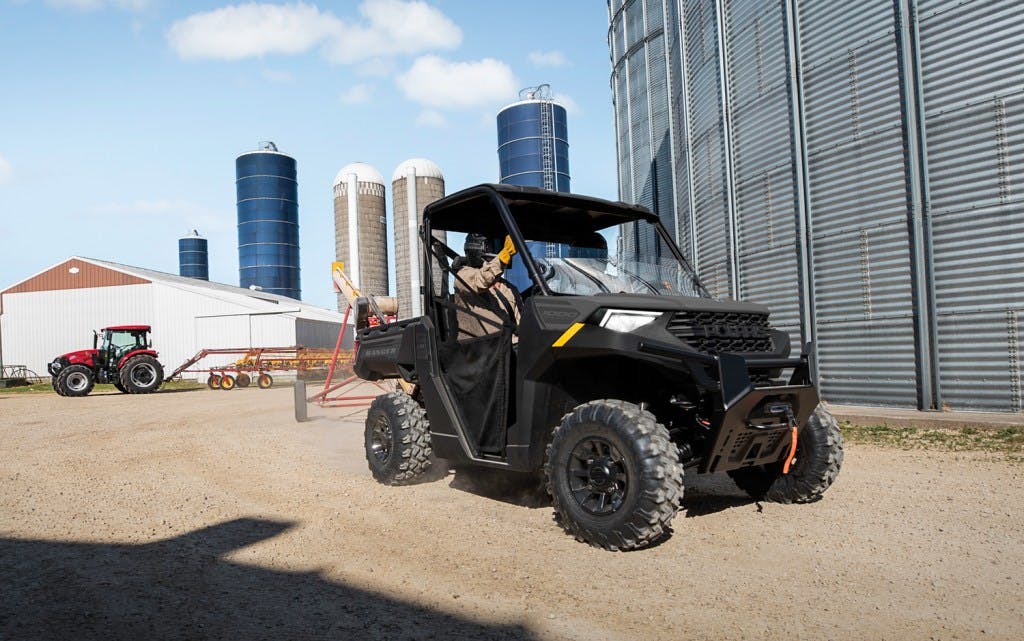
$13,999 MSRP / 61 HP
• focused + popular utility
• middle child of the ranger line
• great mix of price + Ability
Popular for a reason.
The 2024 Polaris Ranger 1000 is the bread and butter of the full-size Ranger lineup. It’s also the bread and butter of Polaris sales, a popular choice from coast to coast. Like all Ranger variants, the 2024 1000 is at home on the farm, at the work site, or on the way to the tree stand.
This is a no-nonsense machine, a strong mix of price and ability.
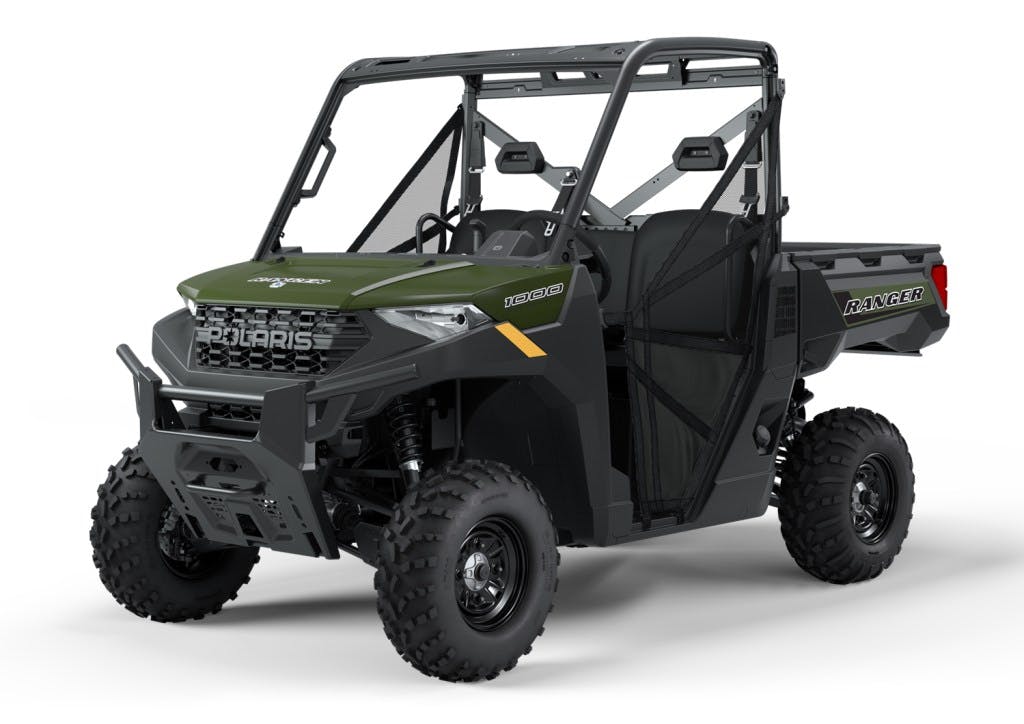
How much power does it make?
Don’t expect mountain-moving grunt. The 2024 Ranger 1000 makes a galloping 61 hp and 55 lb-ft of torque from a 999-cc parallel twin.
At $13,999 in two-seat form, the Ranger 1000 sits smack in the middle of the Ranger line. The entry-level Ranger 570 costs around $2000 less but brings only 44 hp to the table; the more powerful Ranger XP 1000, XD 1500, and XP Kinetic models are more capable in different ways but also far more expensive.
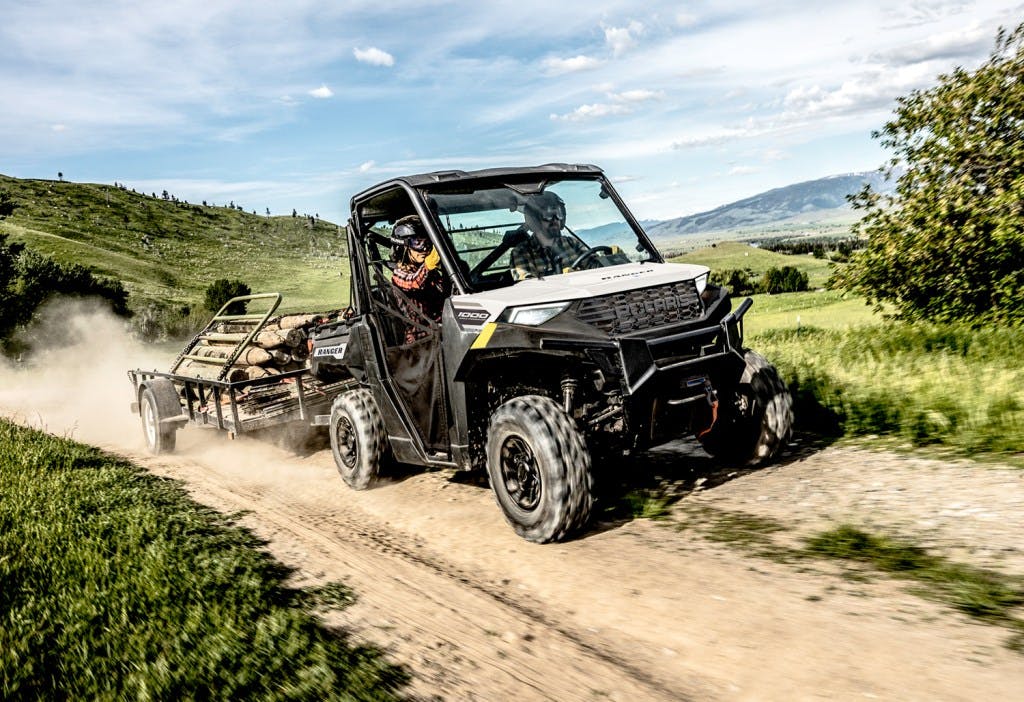
What makes it special?
Despite its relatively low power output, the 2024 Polaris Ranger 1000 is no slouch. This popular bruiser has a 1000-pound bed capacity and a 2500-pound towing capacity. Those ratings are more than enough for most jobs.
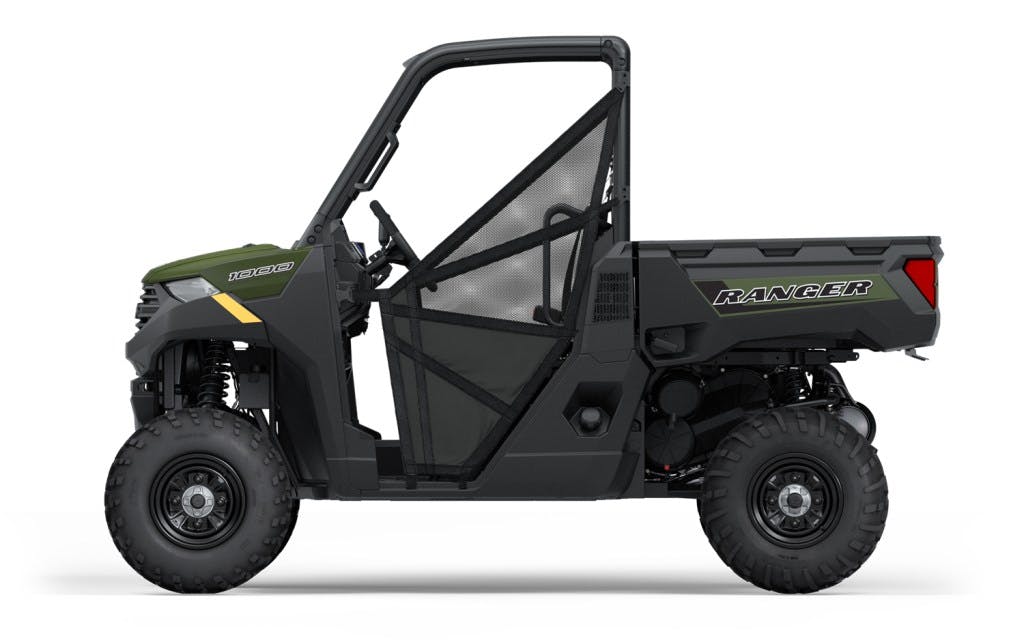
Why do I want it?
There’s a reason you see these things everywhere: price. In base trim, a three-seat Ranger 1000 can be had new for under $14,000. You get a lot of machine for that coin, with 12 inches of ground clearance, true all-wheel drive, and a selectable locking rear differential.
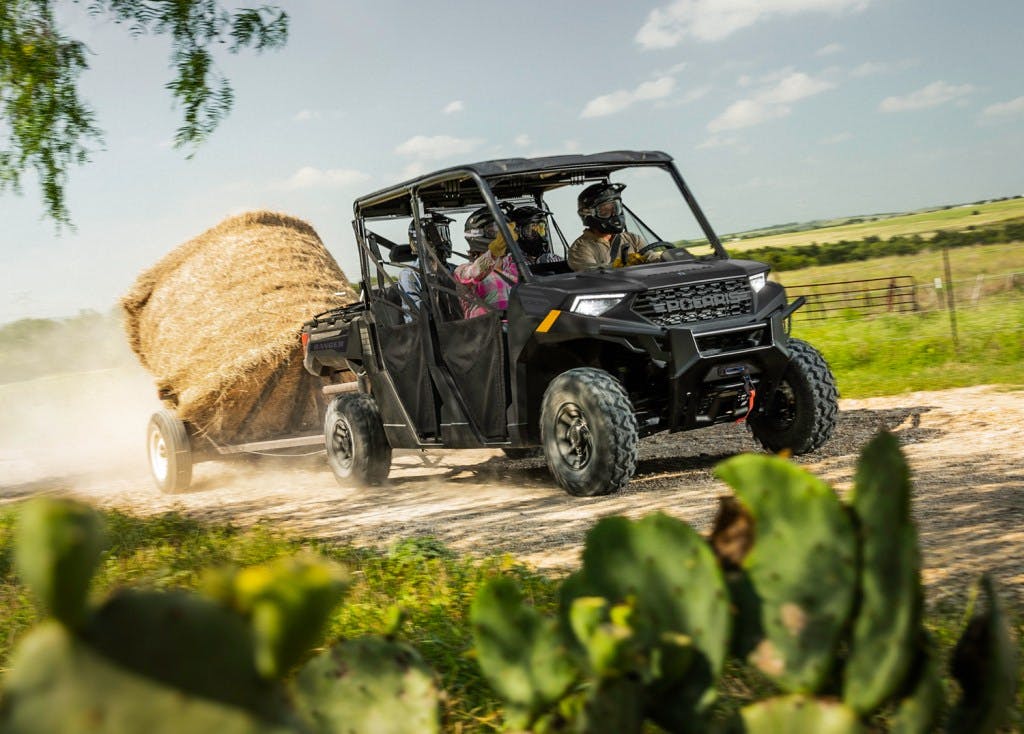
Why don’t I want it?
The Ranger 1000 feels like a relic from the time before side-by-sides were status symbols. This thing is a tool first and a toy second, which means focus. Base and EPS models, for example, wear old-school steel wheels and make do without luxuries like a roof. You don’t even get aluminum wheels until you step up to Premium trim.
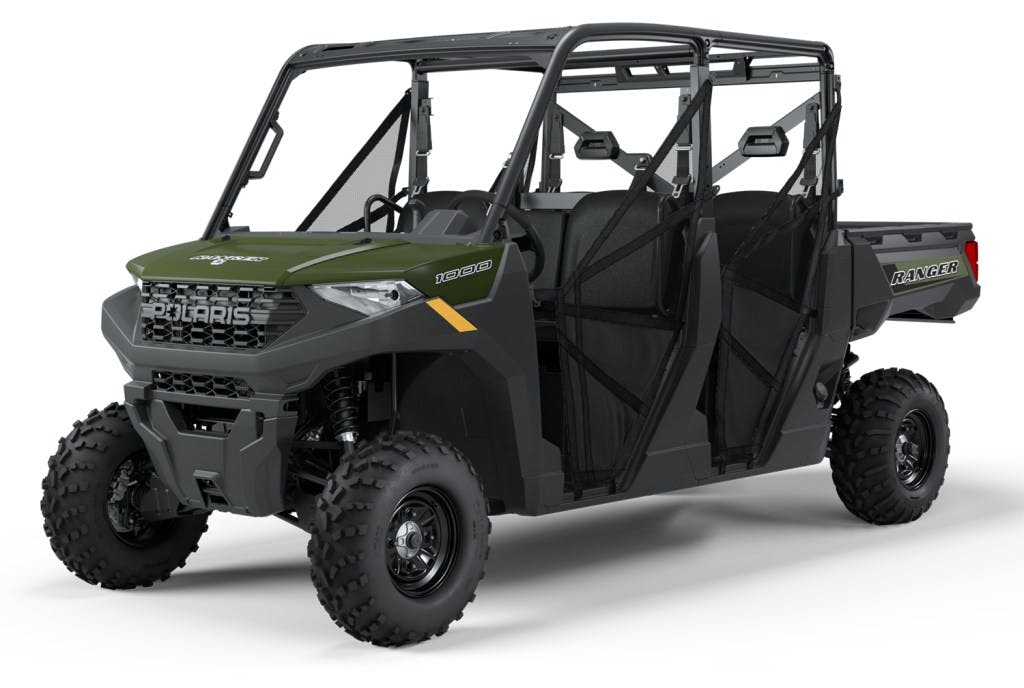
Which trim do I want?
We’ve got a lot of time in these things, so trust us: If you’re buying a 2024 Ranger 1000, an EPS model is the one for you. You don’t get a roof or a winch, as on more expensive Rangers, but the EPS trim replaces the base 1000’s manual steering with a nice electric power-assist setup.
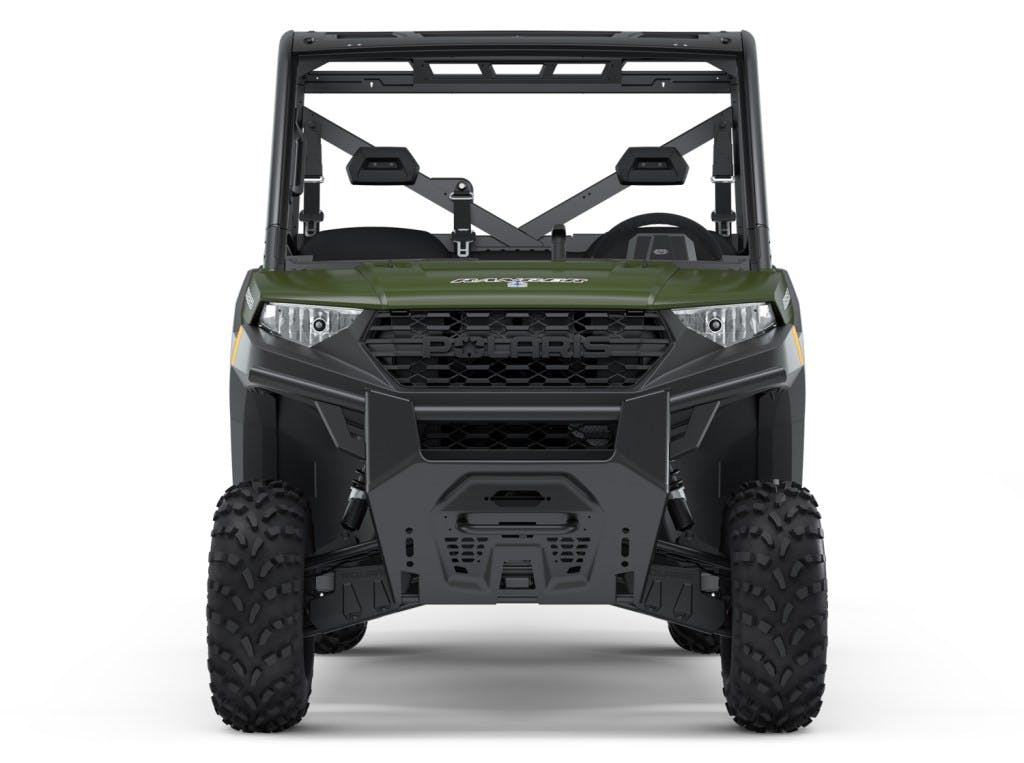
The EPS starts at $15,999 in three-seat form—still cheap as chips by the standards of modern side-by-sides. And while the up-spec Ranger Premium adds in a roof and a winch, it also costs another two grand. Which is more than the aftermarket will charge you for a good poly roof and a quality winch.
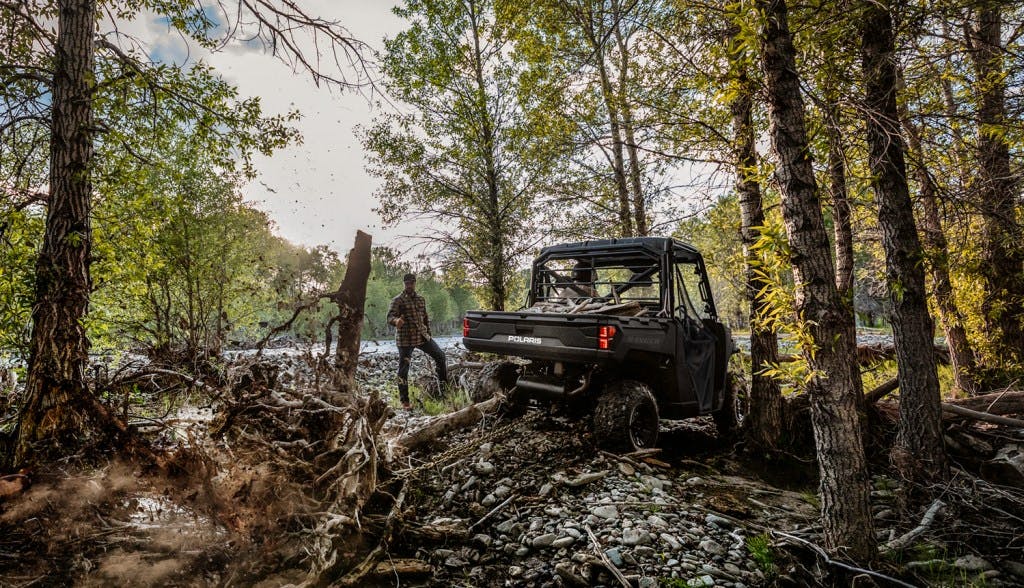
If I like this… what else should I look at?
The base utility market is packed with solid competitors. Machines like the 2024 Can-Am Defender, the 2024 Kawasaki Ridge, and the 2024 Honda Pioneer are solid alternatives for similar money.
2024 Polaris Ranger 1000 Specs
NOTE: Six-seat versions of the Polaris Ranger 1000 are sold as the Ranger Crew 1000.
Length: 120 in. (Ranger 1000) / 152 in. (Ranger Crew 1000)
Width: 62.5 in.
Height: 78 in.
Wheelbase: 81 in.
Curb Weight: 1544 lbs. (dry)
Engine: Parallel-twin
Displacement: 999 cc
Transmission: CVT with park, reverse, neutral, low, and high
Claimed Power: 61 hp
Claimed Torque: 55 lb-ft.
Fuel System: EFI
Steering: Manual (base); Electric power steering (EPS, Premium)
Drivetrain: Selectable AWD w/ 2WD and turf mode (selectable rear locking differential)
Front Suspension: Dual A-arms
Rear Suspension: Dual A-arms
Front Brakes: Hydraulic disc w/ two-piston calipers
Rear Brakes: Hydraulic disc w/ two-piston calipers
Wheels F/R: Stamped steel, 12-in.
Tires F/R: Carlstar 489, 25x10x12 / Carlstar 489, 25x11x12
Bed Capacity: 1000 lbs.
Towing Capacity: 2500 lbs.
Seating Capacity: 3 (Ranger 1000) / 6 (Ranger Crew 1000)
Ground Clearance: 12 in.
Fuel Capacity: 11.35 gallons
